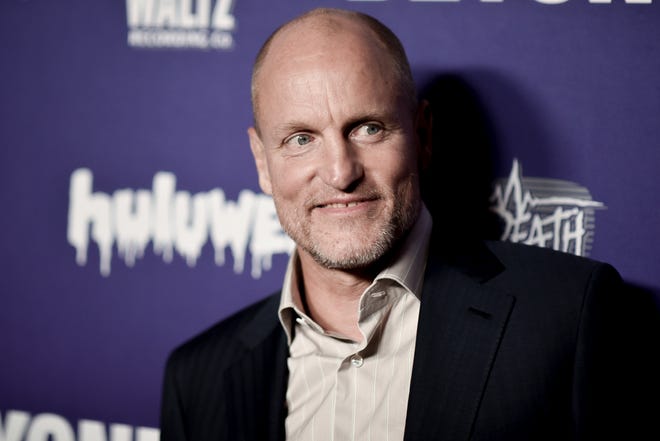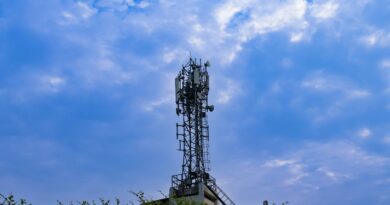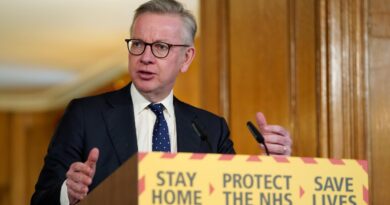Coronavirus 5G conspiracy theory spreads as cellphone towers attacked
The unfounded claims about 5G spreading across social media appear to be contributing to real-world attacks on cellphone towers in the United Kingdom.
Four of Vodaphone’s towers were attacked in this past weekend, according to the multinational telecommunications company. This comes after several cell towers across Britain recently were set on fire. They weren’t necessarily delivering 5G.
A tower owned by BT, Britain’s biggest telecom company, that was damaged in an arson attack provided 2G, 3G and 4G services but did not have 5G capability, the company told Reuters.
Several U.K. telecommunications companies joined Vodafone in condemning the latest attack.
“Please help us make this stop,’’ the companies said in its joint statement, asking for public assistance.
Stopping the attacks is critical to keeping communities connected, said Vodafone and the three other companies that serve British cellphone customers. The companies said the baseless claims about the link between 5G and coronavirus have led to abuse of company engineers and, in some cases, prevented essential network maintenance from taking place.
A video has surfaced on social media of workers being harassed by a woman claiming the technology “kills people.”
Vodafone, the world’s second-largest mobile operator, has said the attacks were now a matter of national security, harming “the very networks that are providing essential connectivity to the emergency services…during this difficult lockdown period,” UK head Nick Jeffery said.
elebrities are adding fuel to the unfounded theory that 5G wireless technology has any connection to the coronavirus pandemic, itself spreading like a virus across social media.

On Friday, Woody Harrelson posted a video on Instagram showing a mob in China tearing down a cellphone tower.
Harrelson did not respond after the weekend incident but had previously written on his Instagram page, “A lot of my friends have been talking about the negative effects of 5G.”
Similarly, British celebrities such as singer M.I.A. and reality show star Calum Best also are among those propagating unfounded connections between the 5G roll out in Wuhan, China, and the origination of the virus.
The difference:What does 5G offer that 4G doesn’t?
Fact-checking:Here’s why 5G and coronavirus are not connected
5G, which actually comprises two different forms of transmission, is the latest generation wireless technology that telecoms have been rolling out in segments over the past year.
A slew of videos supporting the conspiracy theory have been posted on social media platforms such as Facebook, YouTube, Twitter and Instagram, which prompted criticism of those companies. They responded on Monday.
“We are taking aggressive steps to stop misinformation and harmful content from spreading on our platforms and connect people to accurate information about Coronavirus,’’ Facebook said in a statement provided to USA TODAY. “Under our existing policies against harmful misinformation, we are starting to remove false claims which link COVID-19 to 5G technology and could lead to physical harm,” noting the company has partnered with the World Health Organization and the National Health Service in the U.K. to connect users with the “latest official guidance.”
Twitter said its automated systems have challenged more than 1.5 million accounts which were targeting manipulative discussions around COVID-19.
“We’re focused on protecting the public conversation and helping people find authoritative sources of information on Twitter,’’ the company said in a statement provided to USA TODAY.
The company also said it has broadened its definition of harm after announcing last week it had “taken action’’ on over 1,100 Tweets containing misleading and potentially harmful content. “We will continue to take action on accounts that violate our rules, including content in relation to unverifiable claims which incite social unrest, widespread panic or large-scale disorder.’’
YouTube said it has begun “reducing recommendations’’ of borderline content such as conspiracy theories related to 5G and coronavirus.
“We’re committed to providing timely and helpful information at this critical time, including raising authoritative content, reducing the spread of harmful misinformation,’’ the company said in a statement provided to USA TODAY, adding it would use data from the National Health Service, the publicly-funded health care system of Britain, and the World Health Organization to combat misinformation.
*** This article has been archived for your research. The original version from USA TODAY can be found here ***


